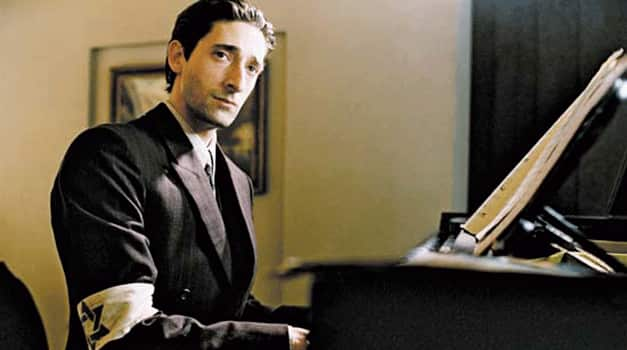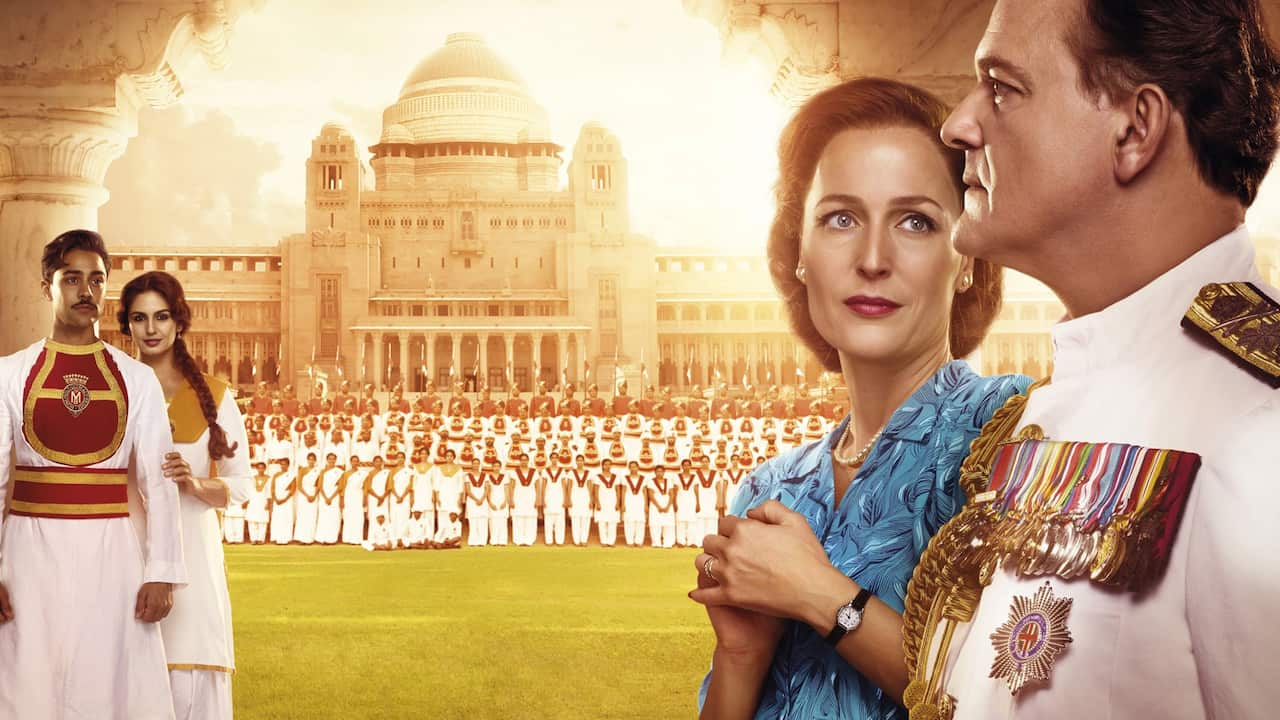Renowned French filmmaker Francois Truffaut famously opined that there was no such thing as an anti-war film. In a 1973 interview with critic Gene Siskel, the director of The 400 Blows said, “I find that violence is very ambiguous in movies. For example, some films claim to be antiwar, but I don’t think I’ve really seen an antiwar film. Every film about war ends up being pro-war.”
Truffaut’s talking about the so-called glory of war and, yes, he has a point: there’s something horribly attractive about all that military action with its uniforms, weapons, shining brass and big machinery, all desperate charges and noble last stands. Even some of the staunchest anti-war films, from Full Metal Jacket to Saving Private Ryan, Apocalypse Now to Gallipoli, have a hard time curtailing all the glamour that war entails.
Still, there’s a class of film that fares better than most at driving home the real horrors of mass conflict, stripped of all illusion. They’re what you might call home front films – movies that deal with the cost borne by the civilian population. It’s one thing to tell a story about bands of brothers leaning on each other in times of horror and hardship, but quite another to zero in on ordinary people getting bombed back into the stone age, nurses tasked with putting the shattered bodies and minds of wounded soldiers back together, or simple survivors struggling with the freight of trauma that war has left them with.
Though it does spend some time in the trenches, James Kent’s Testament of Youth (2014) puts the focus squarely on Alicia Vikander as Vera Brittain, on whose memoir the film is based. After the outbreak of the first World War, Oxford student Brittain volunteers as a nurse, seeing first-hand the horrific injuries visited on the countless thousands of young men being shipped off to the Western Front. Compounding the horror for her is the knowledge that her husband (Kit Harington), brother (Taron Edgerton) and friends (Colin Morgan and Jonathan Bailey) are all serving.
Watch 'Testament of Youth' at SBS On Demand
For his second feature, Kent looked at the cost of World War II with The Aftermath (2019), the story of an affair between the wife of a British officer and a German civilian in post-war Germany, who come together in mutual grief over the loss of her son and his wife in the course of the war.
War has a long tail, after all, and the damage it does lingers long after the last shot is fired or bomb is dropped. No other film understands this as well as Alan J. Pakula’s Sophie’s Choice (1982). Meryl Streep deservedly won the 1982 Best Actress Oscar for the title role, a Polish concentration camp survivor driven to despair over the knowledge that she able to save only one of her children from the gas chamber. Structurally and tonally, Sophie’s Choice is a literary relationship drama rather than a war movie, but the shadow of the war, and in particular the Holocaust, informs every scene.
In a similar vein, consider Mick Jackson’s courtroom drama, Denial (2016), which tells the story of the courtroom battle between Holocaust scholar Deborah E. Lipstadt (Rachel Weisz) and Holocaust denier David Irving (Timothy Spall) – a battle which takes place more than 50 years after the end of the war.
Watch 'Denial' at SBS On Demand
[link title="Fight over the Holocaust explored in 'Denial'" url="node/85732"]

Survivors’ guilt is the dominant theme in films of this kind, and cinema has most often depicted it on the shoulders of returned servicemen struggling to reintegrate into the civilian world. One of the earliest and most notable films to tackle the issue is William Wyler’s The Best Years of Our Lives (1946), released only 15 months after V-J day, which tracks three World War II veterans (Fredric March, Dana Andrews and Harold Russell) trying to get on with their lives after mustering out.
This plot model really came to prominence when the U.S. began to process the psychological cost of their involvement in the Vietnam War, with Hal Ashby’s Coming Home (1978), Oliver Stone’s Born on the Fourth of July (1989) and Heaven & Earth (1993), Norman Jewison’s In Country (1989) and David Nutter’s Cease Fire (1985) all dealing with Vietnam veterans coping with PTSD. So do, to at least some degree, more populist action dramas such as John Flynn’s Rolling Thunder (1977) and the Rambo and Missing in Action franchises, although in these the trauma is exorcised through cathartic violence.

We’ve seen a recent uptick in these types of films thanks to the ongoing conflicts in Iraq and Afghanistan – although it’s largely set in country, Kathryn Bigelow’s Oscar-winning The Hurt Locker (2008) features one bravura scene where Jeremy Renner’s action junkie bomb disposal expert, confronted with the meaningless decision of what breakfast cereal to buy, realises that the regular world has no place for him.
And then there’s Kimberly Peirce’s Stop-Loss (2008), Paul Haggis’s In the Valley of Elah (2007), Oren Moverman’s The Messenger (2009) and Ang Lee’s Billy Lynn’s Long Halftime Walk (2016), which all address similar themes. Richard Linklater’s Last Flag Flying (2017), a spiritual sequel to Hal Ashby’s The Last Detail (1973), bridges the experiences of Vietnam-era and modern-day veterans by having a trio of the former (Bryan Cranston, Laurence Fishburne and Steve Carell) reunited years after they served together to see to the burial of one of their sons, who was killed in action.
However, one of the more interesting films of this stripe is Claudia Myers’ Fort Bliss (2014), which sees Michelle Monaghan as an army medic struggling to recreate her relationship with her five-year-old son after a hellish deployment in Afghanistan. While many home front movies consider the female experience of war, women are often relegated to civilian roles. Fort Bliss, by contrast, is a rare look at a woman’s military experience, a seemingly simple narrative choice that at once makes this particular take on the genre both distinctive and more universal.
Watch 'Fort Bliss' at SBS On Demand
HIGHLIGHTS OF THE WAR STORIES COLLECTION AT SBS ON DEMAND
Churchill
PG
United Kingdom, 2017
Genre: Drama, Thriller, War
Language: English
Director: Jonathan Teplitzky
Starring: Brian Cox, Miranda Richardson, John Slattery, Julian Wadham, Richard Durden, Ella Purnell, James Purefoy, Danny Webb, Jonathan Aris, George Anton, Steven Cree, Peter Ormond, Angela Costello, Kevin Findlay, Miro Teplitzky
What's it about?
A ticking-clock thriller following Winston Churchill in the 24 hours before D-Day.

Their Finest
United Kingdom, 2017
Genre: Romance, War, Comedy, Drama
Language: English
Director: Lone Scherfig
Starring: Gemma Arterton, Sam Claflin, Bill Nighy, Richard E. Grant, Jack Huston, Helen McCrory, Eddie Marsan,
What's it about?
During the Blitz of World War II, a female screenwriter (Gemma Arterton) works on a film celebrating England's resilience as a way to buoy a weary populace's spirits. Her efforts to dramatise the true story of two sisters (Lily Knight and Francesca Knight) who undertook their own maritime mission to rescue wounded soldiers are met with mixed feelings by a dismissive all-male staff.
The Pianist
MA15+, 2002
Genre: Biography, Drama, Music
Language: [language]
Director: Roman Polanski
Starring: Maureen Lipman, Thomas Kretschmann, Emilia Fox, Frank Finlay, Adrien Brody
What's it about?
Oscar-winning film about s Polish Jewish musician who struggles to survive the destruction of the Warsaw ghetto of World War II.
[link title="The Pianist Review" url="node/3215"]

Viceroy's House
PG
India, United Kingdom, 2017
Genre: Drama, History
Language: English, Hindi
Director: Gurinder Chadha
Starring: Hugh Bonneville, Gillian Anderson, Michael Gambon, Manish Dayal, Huma Qureshi, David Hayman, Simon Callow, Om Puri, Lily Travers, Simon Williams, Arunoday Singh
What's it about?
In 1947, Lord Mountbatten assumes the post of last Viceroy, charged with handing India back to its people, living upstairs at the house which was the home of British rulers, whilst 500 Hindu, Muslim and Sikh servants lived downstairs.

